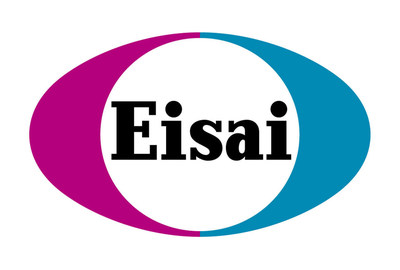Eisai Co., Ltd. (Headquarters: Tokyo, CEO: Haruo Naito, “Eisai”) announced today that the Dominantly Inherited Alzheimer Network Trials Unit (DIAN-TU), led by Washington University School of Medicine in St. Louis, has enrolled the first subject in the phase II/III study (Tau NexGen study).
|
TOKYO, Jan. 18, 2022 /PRNewswire/ -- Eisai Company, Ltd.., (Headquarters: Tokyo, CEO: Haruo Naito, "Eisai") announced today that the Dominantly Inherited Alzheimer Network Trials Unit (DIAN-TU), led by Washington University School of Medicine in St. Louis, has enrolled the first subject in the phase II/III study (Tau NexGen study). The study will assess the effect of Eisai's investigational anti-microtubule binding region (MTBR) tau antibody E2814, in dominantly inherited Alzheimer's disease (DIAD). People who have genetic mutations of DIAD are known to develop Alzheimer's disease (AD) and will likely develop symptoms at around the same age their affected parents did, often in their 50s, 40s or even 30s. The major AD pathologies are amyloid plaque that consists of amyloid beta (Aβ) aggregates; neurofibrillary tangles; and intraneuronal aggregates of tau, all of which are believed to spread throughout the brain. The purpose of the Tau NexGen study is to assess the safety, tolerability, biomarker and cognitive efficacy of investigational therapies in pre-symptomatic or symptomatic participants who have an Alzheimer's disease-causing gene mutation. In March 2021, the DIAN-TU selected E2814, which was created from a research collaboration between Eisai and University College London, as the first investigational medicine among anti-tau drugs for the Tau NexGen study. With increasing evidence from clinical studies showing that targeting amyloid can reduce biomarkers of AD, the Tau NexGen clinical trial leaders selected Eisai's investigational anti-Aβ protofibril antibody lecanemab as the background anti-amyloid therapy, and the study design was amended in November 2021. Eisai positions neurology as a key therapeutic area, and it will continue to create innovation in the development of novel medicines based on cutting-edge neurology research as it seeks to contribute further to improving the benefits of affected individuals and their families in diseases with high unmet needs, such as dementia including AD. Media Inquiries: Eisai Inc (U.S.) Investor Contact: [Notes to editors]
Eisai obtained the global rights to study, develop, manufacture and market lecanemab for the treatment of AD pursuant to an agreement concluded with BioArctic in December 2007. In March 2014, Eisai and Biogen entered into a joint development and commercialization agreement for lecanemab and the parties amended that agreement in October 2017. Currently, lecanemab is being studied in a pivotal Phase 3 clinical study in symptomatic early AD (Clarity AD), following the outcome of the Phase 2 clinical study (Study 201). In July 2020 the Phase 3 clinical study (AHEAD 3-45) for individuals with preclinical AD, meaning they are clinically normal and have intermediate or elevated levels of amyloid in their brains, was initiated. AHEAD 3-45 is conducted as a public-private partnership between the Alzheimer's Clinical Trial Consortium that provides the infrastructure for academic clinical trials in Alzheimer's Disease and related dementias in the U.S., funded by the National Institute on Aging, part of the National Institutes of Health, and Eisai. In September 2021, a rolling submission to the FDA of a Biologics License Application (BLA) for the treatment of early AD under the accelerated approval pathway was initiated. Lecanemab was granted Breakthrough Therapy designation in June 2021, a U.S. Food and Drug Administration (FDA) program intended to expedite the development and review of medicines for serious or life-threatening conditions. * Developed by Eisai, ADCOMS (AD Composite Score) combines items from the ADAS-Cog (Alzheimer's Disease Assessment Scale-cognitive subscale), CDR (Clinical Dementia Rating) and the MMSE (Mini-Mental State Examination) scales to enable a sensitive detection of changes in clinical functions of early AD symptoms and changes in memory. ** An 80% or higher estimated probability of demonstrating 25% or greater slowing in clinical decline at 12 months treatment measured by ADCOMS from baseline compared to placebo
SOURCE Eisai Inc. |





